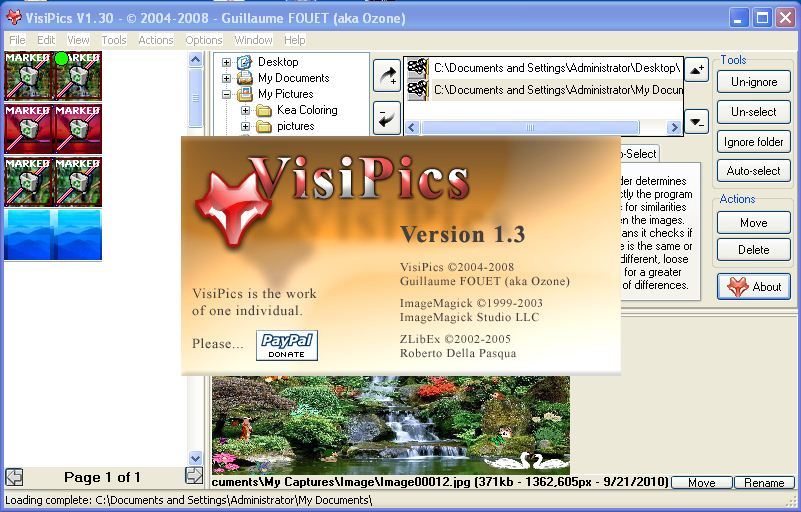
Reading such files can be performed manually using the exiftool utility. However, it may fail to read JPEG files storing JFIF standard 1.01 information. Note: The exifautotran script uses the command jpegexiforient to figure out the orientation stored in the Exif label of a file. Once the installer is done the application will launch. Simply download it, run the installer, and accept the license agreement.
#How to use visipics install#
To rotate all images in a directory automatically, execute: VisiPics is a small, free, and easy to install app.If it doesn't, get the code, save it to your hard drive, and make it executable with chmod 755 exifautotran. See if your jpeg package includes exifautotran.Download jpegsrc-*.tar.gz, compile and install, or install it using your favorite package manager.Most Unixes, such as Linux, have the jpeg library installed by default, but if yours doesn't:

A shell script named exifautotran uses these programs to read Exif data labeled Orientation and automatically rotates the image to the proper orientation - 90°, 180°, 270°, or none. The standard JPEG library includes two programs, jpegexiforient and jpegtran.

Using ABC-View Manager to rotate images.Using JPEG Autorotate in Windows Explorer, to automatically rotate by right clicking the folder containing the photos.

If the camera lacks such a sensor, images would need to be rotated manually, on a case-by-case basis. The camera must be equipped with a built-in orientation sensor. This may not work on images from all digital cameras. The images can be rotated 90°, 180°, 270°, or none if the picture is in the normal orientation. Some digital cameras can record the orientation of the camera when the photo is taken.


 0 kommentar(er)
0 kommentar(er)
